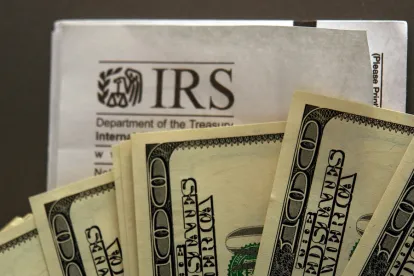The IRS has had a busy start to 2021! Guidance continues to pour forth as the change in Administration approaches. On January 4, the IRS released Revenue Procedure 2021-10, which provides issuers with updated procedures for obtaining review from the IRS Office of Appeals of proposed adverse determinations and rebate refund rejections by the IRS Office of Tax-Exempt Bonds. Rev. Proc. 2021-10 supplements and supersedes Rev. Proc. 2006-40, which previously set forth the procedures for getting to Appeals. Rev. Proc. 2006-40 predated the advent of tax credit and direct pay bonds, and therefore applied only to tax-exempt bonds. As many of you may have experienced, the IRS has applied the logic of Rev. Proc. 2006-40 to tax-advantaged bonds that were not tax-exempt bonds (e.g., BABs) in audits of those bonds. Rev. Proc. 2021-10 adopts this practice.
Specifically, Rev. Proc. 2021-10 provides that an issuer is eligible to request an appeal once the issuer receives (1) a proposed adverse determination that interest on the bonds is not tax-exempt; (2) a proposed adverse determination that an issue of bonds fails to qualify for the tax credits to the bondholders or direct payments to the issuer with respect to the bonds under provisions of the Code applicable to tax-advantaged bonds, such as former §§ 54, 54A, 54AA, 1397E, and 6431; or (3) a proposed adverse determination that denies a claim for a rebate refund. These items are, in effect, your “ticket to Appeals.” On items (1) and (2), recall that the “proposed adverse determination” is the final step in the audit process, coming after the “Notice of Proposed Issue” (often referred to as the “30-day letter”). In most bond issues subject to a continuing disclosure undertaking, the receipt of that Notice of Proposed Issue triggers the requirement for the issuer to disclose the audit to the market, although many issuers may choose to disclose before they reach that point.
In addition, Rev. Proc. 2021-10 modifies Rev. Proc. 2006-40 by explicitly giving the issuer 30 days to correct any deficiencies in the appeal that deviate from the requirements in Rev. Proc. 2021-10. (Given the ambiguity in Rev. Proc. 2006-40 on this point, it probably depends on the situation whether this is a positive or negative change.) The new guidance also notes that the TEB Examination Office will furnish to the issuer a copy of the TEB Examination Office’s transmittal letter and response, if any, to the issuer’s positions stated in its appeal request.
The mechanics of the appeal will continue to be handled under Section 8.7.8 of the Internal Revenue Manual.
There remains no user fee for an appeals request, which is comforting after the IRS recently[1] hiked the user fee for a tax-advantaged bond private letter ruling from $30,000 to $38,000,[2] notwithstanding NABL’s recent request to provide for reduced user fees for tax-exempt bonds.
The new procedures apply to proposed adverse determinations for tax-advantaged bonds or denials of rebate refund claims issued by the TEB Examination Office on or after February 4, 2021.
[1] We would say “inexplicably,” but there’s a pretty clear, if unpalatable, explanation.
[2] And that’s just the cover charge.




 />i
/>i

